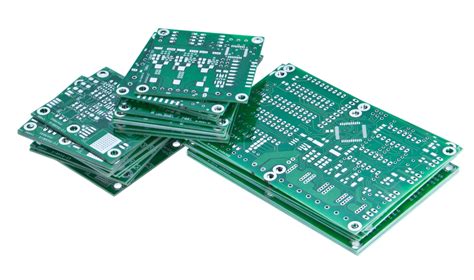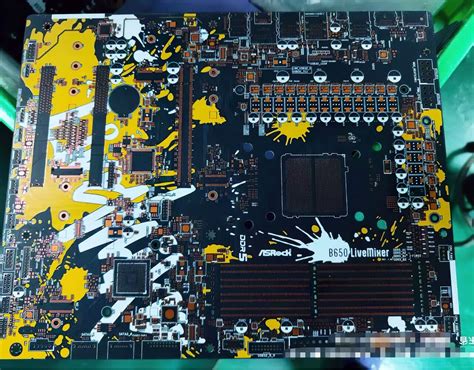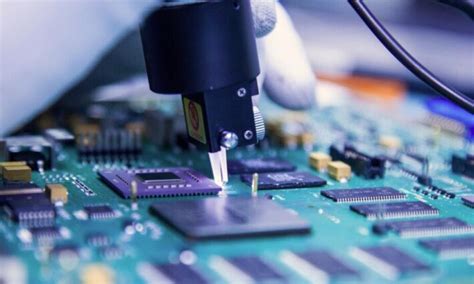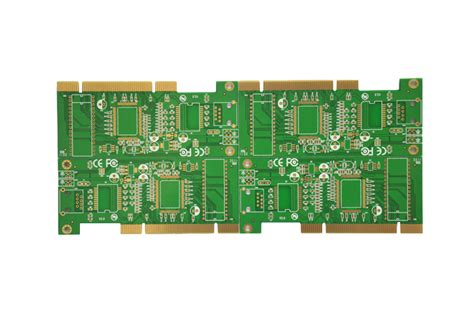Unlocking Innovations: The Ultimate Guide to Turnkey PCB Services
Key Takeaways
In the competitive landscape of electronics manufacturing, turnkey PCB services have emerged as a powerful solution for companies seeking to optimize their PCB assembly processes. By leveraging these comprehensive services, businesses can benefit from streamlined operations that encompass every step, from design to final production. The integration of pcba into the manufacturing process not only enhances efficiency but also significantly improves quality control, ensuring that each board meets rigorous standards. Additionally, turnkey solutions allow companies to reduce costs associated with sourcing and managing multiple suppliers. As industries continue to evolve and feature ever more complex electronic products, understanding the advantages of turnkey PCB solutions becomes crucial for organizations striving to stay ahead. With the right strategy and a dependable partner, businesses can unlock innovative possibilities that propel their projects forward in this dynamic market.
Introduction to Turnkey PCB Services: Revolutionizing Electronics Manufacturing
In today’s fast-paced electronic landscape, the demand for efficient and effective solutions has led to the rise of turnkey PCB services. These comprehensive offerings encompass every stage of pcb assembly, from initial design to final production, streamlining processes for businesses of all sizes. By opting for a turnkey solution, companies can eliminate the complexities associated with managing multiple vendors, ensuring a smoother transition from concept to finished product.
With pcba services, all elements necessary for successful circuit board production are coordinated in one place, reducing lead times and minimizing errors. The integration of sophisticated technology with experienced professionals allows for enhanced precision and quality control throughout the manufacturing process. This paradigm shift not only fosters innovation but also allows businesses to focus on their core competencies while relying on specialized providers to handle PCB needs.
“Choosing a reliable turnkey PCB service not only improves efficiency but also enhances product quality and reduces costs.”
To further illustrate its impact, consider adopting a criteria-based table that highlights vital factors when selecting a turnkey provider:
| Criteria | Importance |
|---|---|
| Experience | A provider’s track record influences reliability. |
| Technology | Advanced manufacturing technology ensures better outcomes. |
| Communication | Clear channels enhance collaboration and timely updates. |
| Support Services | Comprehensive after-sales support adds value to partnerships. |
As businesses continue to seek innovative approaches in electronic manufacturing, understanding the role of turnkey PCB services becomes essential for staying competitive in an ever-evolving market.
The Benefits of Turnkey PCB Solutions: Efficiency, Quality, and Cost-Effectiveness
Turnkey PCB solutions revolutionize the way electronics are manufactured by offering a seamless process that integrates design, pcb assembly, and production. One of the primary benefits is efficiency: by consolidating various stages of PCB manufacturing into a single provider, businesses can significantly reduce lead times. This streamlined approach ensures that all components are accurately sourced and effectively assembled, leading to fewer miscommunications and delays. Additionally, the quality of products is enhanced as suppliers who specialize in turnkey solutions have established processes and standards that guarantee a higher level of excellence in pcba practices. This results in not only more reliable end products but also increased customer satisfaction. Furthermore, with regard to cost-effectiveness, utilizing turnkey services can lead to substantial savings; companies benefit from bulk purchasing discounts on components and reduced labor costs as they minimize the logistical complexities involved in managing multiple vendors. As a result, businesses are empowered to innovate more freely, knowing they have a solid foundation through their turnkey PCB partner that supports their electronic project goals.
Key Factors to Consider When Choosing a Turnkey PCB Provider
When selecting a turnkey PCB provider, several key factors should be taken into account to ensure the success of your electronic project. First and foremost, you should assess the provider’s expertise in PCB assembly, commonly referred to as PCBA. It’s essential that they possess a robust understanding of the complexities involved in designing, manufacturing, and assembling printed circuit boards. Moreover, check for their certifications and compliance with industry standards, as this reflects their commitment to quality and safety in production.
Another crucial factor is the provider’s ability to handle customization. Each project may have unique requirements, so it is beneficial that the provider offers flexible options tailored to your specifications. Communication is equally important; an effective turnkey PCB provider should maintain transparent communication throughout the process, providing regular updates and being responsive to your queries.
Additionally, consider their production capacity and turnaround times. The ability to scale production efficiently can significantly affect your project timelines. It’s also worthwhile to evaluate their technological capabilities; access to advanced manufacturing technologies can enhance the quality and precision of the PCBA.
Lastly, look into customer testimonials or case studies that demonstrate successful outcomes with previous clients. This can give you insights into their reliability and effectiveness in delivering high-quality, timely solutions while managing challenges effectively. By carefully weighing these factors, you can select a turnkey PCB provider that aligns with your project goals and fosters innovation in your electronic endeavors.
The Step-by-Step Process of Turnkey PCB Manufacturing
When embarking on the journey of turnkey PCB manufacturing, understanding the step-by-step process is crucial for achieving successful outcomes, especially in pcb assembly. The process typically begins with initial consultations between the client and the turnkey provider. During this stage, project specifications are defined, including functionalities, design requirements, and project timelines. Following this, the design phase commences, where highly skilled engineers leverage sophisticated software to create pcba layouts that are optimized for performance and manufacturability. This is then subjected to rigorous Design for Manufacturing (DFM) checks to ensure feasibility.
Once the design is finalized and approved, raw materials are sourced in bulk—another significant advantage of turnkey services, which often provides economies of scale. Following material acquisition, prototyping comes into play; this involves creating a small batch to validate functionality before full-scale production begins. With prototypes evaluated and adjustments made as needed, production lines are set up to streamline the assembly of printed circuit boards (PCBs), incorporating automatic pick-and-place machinery for efficient component placement.
Throughout this entire process, quality control measures are integrated at multiple points to enforce standards that minimize defects and ensure reliability. Finally, post-manufacturing processes such as testing and compliance checks are performed before products are packaged and prepared for delivery. By leveraging a turnkey PCB manufacturing approach, companies can significantly reduce lead times while maintaining high-quality output that fosters innovation in electronic projects.
Overcoming Challenges in Turnkey PCB Production
In the realm of turnkey PCB services, manufacturers often face a variety of challenges that can hinder efficiency and quality. One of the primary issues is maintaining clear communication throughout the pcb assembly process. Misunderstandings in specifications can lead to errors, resulting in increased production costs and delays. To address this, it’s essential to establish a strong collaboration between designers and manufacturers at the outset. Another significant challenge is ensuring that the materials used meet industry standards. High-quality components are crucial for durability and performance; thus, selecting suppliers that provide reliable, compliant materials is paramount.
Additionally, navigating the complexities of pcba technology—such as evolving software tools and manufacturing methods—requires ongoing education for both teams involved. Staying ahead of technological advancements not only aids in problem-solving but also fosters innovation within the project scope. Furthermore, scalability matters; as demand fluctuates, so too must production capabilities. Implementing flexible manufacturing solutions can help overcome this hurdle by allowing providers to adjust resources dynamically according to project needs.
Finally, understanding and managing potential regulatory hurdles cannot be overlooked. Compliance with safety standards and electronic waste regulations plays a vital role in smooth operation. By proactively addressing these challenges through meticulous planning, clear communication, and continuous improvement in practices, companies can leverage the full potential of turnkey PCB solutions to create groundbreaking products that meet market demands efficiently.
Real-World Applications: Success Stories of Turnkey PCB Implementation
The implementation of turnkey PCB services has revolutionized various industries through remarkable success stories that highlight their transformative power. One notable example is in the medical technology sector, where a startup leveraged turnkey PCB services to develop a sophisticated monitoring device. By utilizing a comprehensive pcb assembly solution, the company effectively integrated design, assembly, and testing processes, which drastically reduced their time to market. This successful project not only complied with strict regulatory standards but also ensured high levels of reliability and performance, ultimately leading to improved patient outcomes.
Similarly, in the consumer electronics industry, a well-established brand faced challenges with its production line due to outdated manufacturing practices. By switching to turnkey PCB solutions, they streamlined their pcba process, optimizing components sourcing and assembly. The collaboration resulted in significant cost savings while enhancing product quality. Their innovative product line not only garnered industry accolades but also reinforced their competitive edge by meeting customer demands more efficiently.
These examples underscore how embracing turnkey PCB services can empower businesses across various fields to unlock innovation and foster growth through enhanced efficiency. As industries continue to evolve, the ability to adapt through such comprehensive solutions will remain crucial for staying ahead in an ever-competitive landscape.
Future Trends in Turnkey PCB Services: What to Expect
As technology continues to evolve, the landscape of turnkey PCB services is likely to undergo significant changes that will shape the future of electronics manufacturing. Increasing demand for smaller, lighter, and more complex electronic devices is steering developers towards advanced PCB assembly techniques. One notable trend is the integration of smart technologies such as automation and artificial intelligence in the PCBA process, which enhances production efficiency and reduces human error. This shift leads to rapid prototyping, allowing for quicker iterations and advancements in product design. Moreover, sustainability has emerged as a key focus, pushing providers to adopt eco-friendly materials and methods while maintaining cost-effectiveness. The role of data analytics also cannot be overlooked; enhanced data collection throughout the manufacturing process empowers companies to optimize operations and predict potential issues before they arise. As these trends evolve, businesses that leverage reliable turnkey PCB solutions will not only streamline their production processes but also drive innovation within their respective industries, positioning themselves advantageously in a competitive market.
Conclusion: Harnessing the Power of Turnkey PCB Services for Innovation
In the rapidly evolving landscape of electronics manufacturing, turnkey PCB services represent a pivotal advancement, enabling companies to streamline processes that enhance both innovative capacity and operational efficiency. By adopting a comprehensive approach to PCB assembly, businesses can effectively reduce time-to-market while ensuring superior quality through specialized expertise. This integration fosters a collaborative environment between PCBA providers and clients, allowing for a seamless transition from design concepts to finished products. As organizations strive to remain competitive, leveraging these turnkey solutions not only simplifies the intricate processes involved in production but also mitigates potential risks associated with component sourcing and manufacturing. Ultimately, embracing these services empowers businesses to focus on what truly matters: transforming visionary ideas into tangible technologies that shape the future.
Conclusion: Harnessing the Power of Turnkey PCB Services for Innovation
In today’s fast-paced technology landscape, utilizing turnkey PCB services can significantly enhance your ability to bring innovative products to market. These comprehensive solutions streamline the entire pcb assembly process, allowing businesses to focus on their core competencies while benefiting from the expertise of specialized manufacturers. By opting for a turnkey service provider, companies can achieve shorter lead times, reduce production costs, and maintain superior quality through integrated processes that cover everything from design to final assembly. The adaptability of pcba systems facilitates not only efficiency but also fosters creative problem-solving and encourages rapid prototyping. As businesses increasingly rely on these services, they create pathways for collaboration that drive innovation across various industries. By embracing the versatility and reliability of turnkey PCB solutions, companies position themselves to excel in a competitive market, turning visionary ideas into successful electronic projects.
FAQs
When considering turnkey PCB services, it is essential to address some common questions that may arise. One frequently asked query is about the difference between PCB assembly and the term PCBA. In essence, PCB assembly refers to the process of placing components onto a printed circuit board, which is an integral part of the overall production of electronic devices. PCBA, or printed circuit board assembly, encompasses not only the assembly process but also includes the additional steps of testing and quality assurance, ensuring a complete and functional end product.
Another vital question pertains to the timeframe required for services. The duration can vary significantly based on factors such as design complexity and order volume. However, a reliable turnkey PCB provider typically offers expedited services without compromising on quality, allowing clients to meet critical deadlines efficiently.
Additionally, inquiries often arise regarding cost implications. Leveraging turnkey services can be economically efficient, as they streamline processes by integrating multiple steps—from design through to production—under one roof. This holistic approach minimizes miscommunication and rework, ultimately facilitating faster time-to-market.
With these insights into popular FAQs surrounding turnkey PCB services, stakeholders can make informed decisions tailored to their project needs and requirements.







